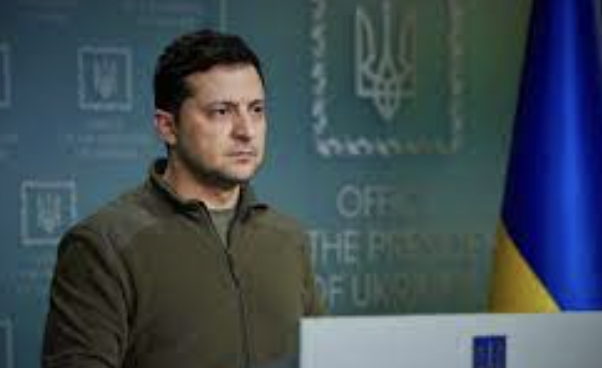Glenn Albrecht on “Divining Chaos; The Autobiography Of An Idea”!
Volodymyr Zelensky, President of the Ukraine, a man who is not a strong man but is actually strong, defying Putin’s bullying.
Even as Putin pursues an asymmetric WW III to all our peril, I feel heartened by the global response to the horror In the Ukraine. As Putin threatens nuclear reprisals, it's hard to keep creating, thinking and sharing in the depths of this terrorism. But I think that's part of our resistance. It is resistance to toxic patriarchy and the ecocide which mirrors that toxicity.
Pleased and honored to share Glenn’s review of my book:
Ecoartist Aviva Rahmani illuminates and expresses the damage done to our world by patriarchy in terms men might understand. She once collaborated on a performance about rape that included nailing raw kidneys to walls (Ablutions 1972). In Divining Chaos she nails her own heart to the Earth’s gallery wall and invites us to examine it, a daunting experience of critical life-moments revealing the complex dialectic of violation. Her "trigger point theory" for healing emerges with ecologically inspired art and empathy for the human community and the self. To read about the deflowering of the Earth as personal biography is powerful. Yet, to fight ecocide and regain the symphony of life, we must 'read' and 'listen' to her beautiful, beating heart, an avatar of harmonia mundi.
-Glenn Albrecht, environmental philosopher' and author of “Earth Emotions” (2019) and “Solastalgia (2007)”
I believe that in this book I have addressed pretty much all the issues we’re facing now, including the rise of a strong man like Putin and his twins, other authoritarian figures on the world stage and their connection to ecocide.
Meanwhile, please join me this week for these online panel events:
College Art Association talks this week:
10: AM March 4, 2022
Aviva A. Rahmani
For the panel: Ecofeminism and Ecoart: Moving from Rage to Healing?
And:
12: PM March 5, 2022
Aviva A. Rahmani, INSTAAR University of Colorado at Boulder and Amara Geffen, MFA, Allegheny College
Are we there yet? Resilience and Transdisciplinarity in Ecoart Since 1999

